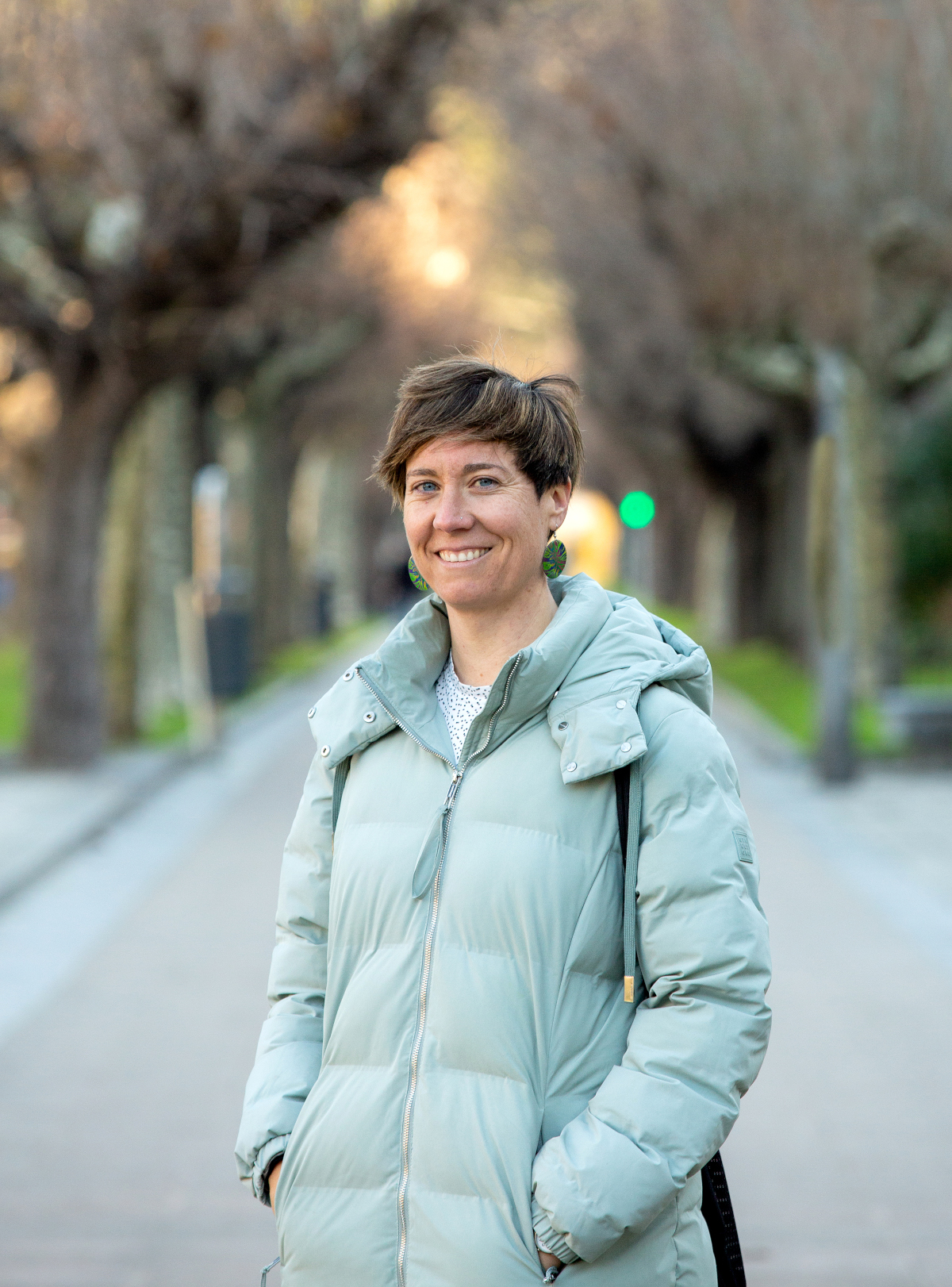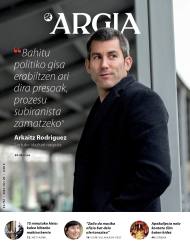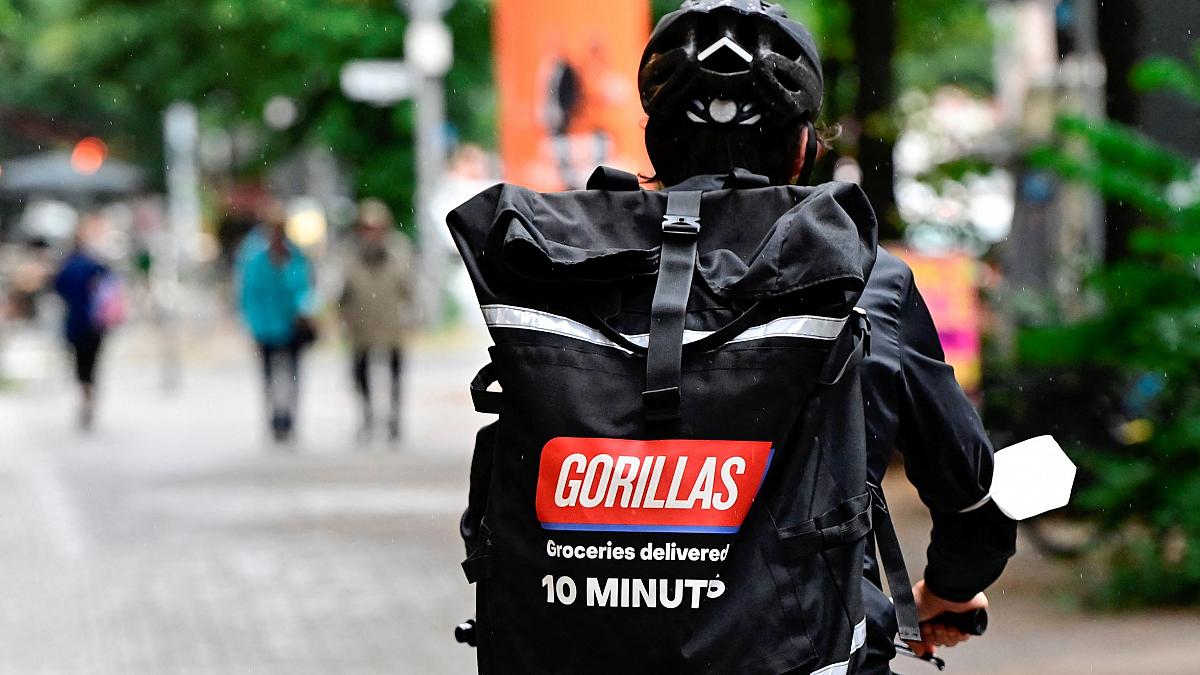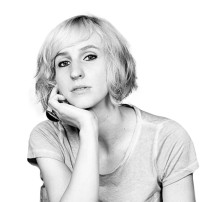"Almost a year after receiving the vaccine, I'm not yet able to lead a normal life."
- Eneritz Zubiaurre is a professor and, in response to the first vaccine call from the society that was made in this work area, received a puncture on March 14, 2021. He was touched by Astra Zeneca. “No one, not even the nurse who gave me the vaccine, told me about the consequences I could have. I just stood in line and got vaccinated.” Since that day, his health has been greatly impaired. He points out that the doctors at Osakidetza have had a hard time diagnosing well (he has polyneuropathy) because “they did not want to accept that the cause could be a vaccine.” He would like to contact those in the same situation so that society can stop ignoring these people and jointly demand the responsibilities for the effects of vaccines. She has two little daughters who, playing with them, find out how far her body can move in the moment and how far it can't.

I expected the first two days not the following year: “Before me, my peers were vaccinated and they were in bed for about two days. Fifteen minutes after the vaccine I noticed nothing. But the next day I couldn't get out of bed. I had very little warmth, 37 and a half, and I thought it was a beating like that of my peers and that I was going to spend two days.”
He got the vaccine on a Sunday, and the next week the season went down: “Monday was wrong, Tuesday worse, Wednesday worse, Thursday worse... And wrong means I was asleep. I slept 17 hours a day. What I noticed was fatigue. If someone was talking to me, I couldn't even open my eyes. The voice was also very low, almost lost. I was sleepy, I wasn’t aware of what was happening to me, and I think worse than I was at home: my parents didn’t come home throughout the pandemic and those days were six to seven hours every day looking at me.”
On Friday, the premises were taken to the emergency room. In Osakidetza, they ran tests, looked at oxygen saturation, took out a plaque... “They told me everything was fine and sent me home.” The next day he felt even worse. “I started coughing, I struggled to breathe... And we went back to the emergency room. I got the corticoid in my vein and I came home with corticosteroid treatment.”
"I walked very stiff, very slowly, without lifting my legs almost to the ground... I was out of the house for a month. I sent my legs to get up, but they didn't answer me."
She explains that the seven-day corticoid treatment remained awake, “but despite everything, she felt very tired. I was walking very stiff, very slowly, without lifting my legs almost to the ground... I was out of the house for a month. I didn't know what movements I could make with my body and which I couldn't. I ordered my legs to get up, but they wouldn't answer me. To drink a glass of water, he carried his lips to the forest that was on top of the table and with his hands he only tilted the glass, had no strength to raise the water from the forest. I couldn't move legs or arms. Even a month later, I couldn't climb the stairs. I also lost the dictionary, started talking, and I was unable to remember words as simple as 'the chair', 'the backpack'. That was when I was tired.”
He lives in Deba and in May he began to make the first exits of his house: “I was able to walk 200 meters away from home, no more. I'm a very sailor, and they took me to see the sea by car, and they took me to do the first swim by car, and they pulled me down in my arms among my friends, in May. I’m not yet able to drive the car.”
In the months of June and July, as it has gradually gone, it has been gaining strength. “In September I managed to close my hands and alternately move one arm and another (alternate).”
"I'm not Eneritz before. I've always been very positive and I've moved forward, but I've got that point of sadness."
Eneritz is a seasonal woman, she's not going to stand still. Before the pandemic I travelled many times from Deba to Mutriku, along with his partner and children: “When do I do it again? I'm not able." He speaks clearly and calmly and shows a nice force, but his current reality is hard: “The vaccine that had to save our lives has crippled my life. I have not been able to stay alone with my children until many months have passed. If in the morning I went to the beach, in the afternoon I could not do anything, and in summer I needed help to return home from the beach. Today, I'm also not able to spend a lot of time out of the house, I have to be sitting there for a long time, and I walk up the shelves like a robot, it costs me a lot. I am not the old Eneritz. I've always been very positive and I've moved forward, but I've got that point of sadness." He is convinced that with his action he will achieve everything he can recover, but from there his future is a great mystery: “Looking to the future, I’m told that with rehabilitation I’ll be recovering capacities little by little, but don’t know to what extent, because vaccines are new. My future is pure uncertainty. And my concern is that I'm never going to have Eneritz again, because nobody has the answer. Perhaps I am in the process of approving this next Eneritz. That doesn't mean I'm not struggling to get well. But I must accept what is there and, at the moment, enjoy what can be done.”
Joy is noticeable when he counts everything he has recovered with rehabilitation: “Before I could not be in the lau-hana, I could not put my leg on the tips, I could not move my fingers, I could not move my left leg and my right hand at the same time, I could not be working... I didn't stay in bed, I was very clear I had to try every day, and I was dragging to the couch, I was playing with the kids as I could ... From the very beginning I wanted to get well and I thought I was going to get well. Imagine what I was convinced I would call my substitute for work weekly saying that ‘the next week I’ll get back to work’. Imagine what I had in my head and what it took me to recognize. This year, on the other hand, I told my substitute that I will not return for the whole course. Yes. But I’m aware of what’s there.”
But there's one thing the vaccine hasn't broken down: “I am very social, and I have kept it, I was taken to the streets, and I love to have coffee!”
“Nobody wanted to see what it was”
“During the first two weeks doctors tried to prove whether it was COVID-19. I had a lot of PCR tests done. Nobody wanted to see what it was, even though I got the vaccine and got sick the next day.”
The corticoid treatment that Osakidetza underwent ended a week and the patient was extended and extended, leaving for heaven and earth without further treatment. The family doctor called him asking how he was and feels his support: “The medical family has tried, knew how I was and told not to leave me saying I had mental illness. Because many women blame us, so I define myself, this scourge, the 41-year-old woman. Our word is called into question.”

In May it was the first time he saw the two specialists in Osakidetza: a pulmonologist and a cardiologist. “My illness is related to neurology, so it had nothing to do with those two specialists. The pulmonologist, when almost two months after I got sick, saw me still annoyed, told me that sometimes people invented diseases. I told him, to begin with, that he had a name, that it was not what the truth said and that he looked in the face. With my answer he saw that he was not sick from his head, and he told me that he was willing to help him, and I told him that he didn't need his help, that he preferred to be with another professional if he had to do it. And I left.”
From March to July it was undiagnosed: “My medical family told me that it could have been caused by the vaccine, but without certainties… I told me that my immune system was low and it was like a permanent COVID-19, but all in the air.”

In July she decided to go to another doctor privately: “What served me is the collegiate physician, but also offers acupuncture, nutritionism and integrative medicine. She saw me, she gave me a questionnaire and in half an hour she told me that a neurologist had to study it, had a polyneuropathy: a blockage in the peripheral nervous system, a mismatch. Why did he detect it so quickly? It was clear that vaccines have many consequences, that is, as a doctor I had recognized that possibility. With this diagnosis I went to the family doctor, I was summoned to the neurologist in a week and the neurologist urgently requested the MRI, which was done at the end of August.
"It's taken doctors to accept where it came from."
They looked at me if I had pathologies, some concrete tests... They looked at me from the top down and they saw that I had no pathology or injury. He also told me that during the first two weeks after vaccination we will not know what might have happened in my body, as neurological tests had not been performed. It's been hard for doctors to accept where I came from, and eventually I've asked the doctor to write down why I can't take another dose of vaccine. The doctor wrote it on January 3.” Subsequently, it
is the neurologist who performs the follow-up, although the time periods from one appointment to another are very long: “In October he last saw me and gave me the following quote for June 15.”
Zubiaurre is clear that rehabilitation has saved: “In June I asked for the rehabilitation to begin in Osakidetza, but because they didn’t know what I had, they were afraid to start and denied me. The integrative physician told me that through the movement the nervous system is returned. In September I started on my own in private rehabilitation, and in Osakidetza for the second time I applied for rehabilitation and in November I started in Osakidetza. With retraining I am another person.”
Has declared the "reaction to medicines" but has no passport
On the first low of Zubiaurre already states that the reason for his situation is “the post-vaccinal reaction IAI (anti-drug reaction)”. “The family doctor acknowledges me that at the moment I cannot take another dose. Other doctors tell me that neither now nor later, to take nothing else, it will certainly affect me, and the second dose can affect me worse (what would be worse? ), or a little better. Almost a year has passed and I am not yet able to lead a normal life. “I’ve had a reaction against medicines.”

However, you haven't taken any steps for COVID-19 because it hasn't taken all the doses. He would like to make his position clear: “I am totally against this passport. How have we fallen and how have we accepted it?” But, in order to tackle the contradictions of the institution that has implemented the passport, he explored at the time all the ways to apply for the passport: “On December 15, I wrote an e-mail to Ararteko, Osakidetza, Zuzenean to the citizen’s attention and to the Department of Health of the Basque Government. I set out my case and asked them to see what alternatives they would give me for the COVID-19 passport.” Subsequently, Ararteko replied in writing that the file was opened and that the case would be referred to the Department of Health. On 23 December the Department of Health replied in writing: "We will process the request to the appropriate service and you will receive an answer in your email." And the answer came: “In relation to your donor, we inform you that if you have a contraindication and therefore cannot obtain the certificate, you can obtain the certificate of proof: PCR and antigen”. Zubiaurre responded to this email by asking which public health center could go to perform these tests and the answer he received was as follows: “As for your donor, only negative tests from private laboratories will be valid. Tests carried out in Osakidetza are exempt.”
The swings with the passport have brought him a bitter fragment: “It happened to me in my own town, in the pediment that put one of those Christmas parks, I had to go with the boy and stay out. I think these things have touched me the most in my mood. Should we get stuck, rather than helping each other? They have put us in a situation in which we are losing all humanity.”
"I felt very lonely and helpless."
This is what it says: “I’ve felt very lonely and helpless, and it’s been very difficult for doctors to recognize what it was, even though it was clear what the consequence was. In September I was discharged for a year and to give such a long leave, what do you think I have?”
“And in society, I’ve also felt completely excluded. We've been getting into this dichotomy of vaccinated and unvaccinated, and where are we like me? Things are neither white nor black. We must try not to fall into what the superiors want, because here we are all suffering. For everyone to make their choice, all choices have their risk and don't judge others. What's happened to me is curious, people thought it was like this for COVID-19. When I say it's a vaccine, everyone is silent. I'm almost not asked how I am, the conversation is over. We don't want to see this reality because it makes us afraid. And for me that's really hard. Or having to listen ‘has been bad luck’, yes, well, that’s right, but it does happen! Or are you sure it’s by vaccine?” said more than one on the street.
Fight for your case to be accepted among collateral damages: “I have filled out the pharmacovigilance form in Spain, but I do not know whether or not they have taken it into account.”
"I'm not the only one"
"Who assumes the responsibility that I am like that?"
“I’d like to contact other people affected by the vaccine. I don’t think it’s the only one,” Zubiaurre said. In fact, some Public Health workers have said that their case is not the only one, that the consequences are now being seen. “But they tell me everything verbally, at very punctual moments, then they are silent ... The subject is very new, I have also known the word pharmacovitilancia!”
The theme is new and explains that the person in this situation also needs their time to accept and make known what is happening to them: “I think we also have a point of fear. I am not doing anything wrong, I am suffering consequences, and it seems that explanations and justifications have to be given by me.”
With the necessary time, but with a view to the future, it is necessary to bring together people who are in a similar situation and to demand responsibilities: “I believe that pharmacovitilantics should assume its responsibility. Who bears the responsibility for me being so? That will have to be linked in some way, right?”
Pandemiaren eragina indarkeria matxistan azterketa kaleratu berri du Espainiako Gobernuak. Bertan ondorioztatu dute eraildako emakume kopurua gutxitu egin dela, hauek kontrolatuta eduki dituzten denbora gehitu izanaren ondorioz. Baina emakumeen suizidioak gizonenak baino gehiago... [+]
Merkatura ateratzear den Hipra txertoari patenteak kendu diezazkiola eskatu diote hogei erakundek Espainiako Gobernuari. Izan ere, Kataluniako multinazional honek COVID-19aren aurkako txertoa egiteko entsegu klinikoetarako diru publikotik gutxienez 15 milioi euro jaso ditu.
Nafarroako Gobernuak bart gauerditik aurrera indargabetu ditu COVID-19aren aurkako neurri murriztaile gehienak. Kalean eta ikastetxeetako patioetan ez da derrigorrean maskararik erabili beharko, gaueko aisialdiak eta ostalaritzak pandemia aurreko ordutegiak berreskuratuko... [+]
"Osasun Sailaren immobilismoaren eta konponbide ezaren aurrean", otsailaren 25ean greba deitu dute lehen arretan ELA, SATSE, LAB, CCOO eta UGT sindikatuek eta otsailaren 28an Osakidetzako esparru guztietan. Horrez gain, otsailaren 26an manifestazioak egingo dituzte... [+]
Chop! There it comes again, I've felt in my chest early, this puncture is rare.
Chop! I've gently rubbed the part of my heart above the jersey. To see if it happens, I have already said it under, so no one can hear it. At present, care must be taken to control what you are going... [+]
La Bogue da Frantziako Limousin (okzitanieraz Limosin) eskualdeko hedabide alternatiboa. Kolektibo autonomo batek kudeatua, boluntarioek egina eta militantea, bere burua kokatzen du mugimendu anti-autoritarioaren baitan. Bertan agerturiko artikulua itzuli dugu euskarara.
“Proba bat egin ostean, COVID-19an positibo eman dut. Ondo nago, sintoma arinekin. Hurrengo egunetarako aurreikusitako agenda publikoa atzeratu eta konfinamendutik lanean segituko dut”. Kendu agenda publikoaren zera hori erditik, eta edonorenak izan zitezkeen... [+]
Igande eguerdian milaka lagun atera dira Donostia, Bilbo eta Gasteizko kaleetara gehiengo sindikalak deituta, kalitatezko osasun publikoaren alde eta Lehen Arreta jasaten ari den kolapsoaren aurka. Oso gogor mintzatu dira Iñigo Urkullu buru duen Jaurlaritza osasun... [+]
Osakidetzaren azken protokoloak dio positibo baten kontaktu estua izanagatik COVID-19a azken 180 egunetan pasatu duenak, txertatuta egon edo ez, ez duela etxean berrogeialdirik egin beharrik, baldin eta ez badauka sintomarik.
Txertoaren hirugarren dosia abian da herrialde aberatsetan eta laugarren dosia ere ezarriko zaie arrisku taldekoei. Denborarekin txertoek eragindako antigorputzak galdu egiten dira, eta horiek gehitzeko errefortzu dosiak jartzea da gobernuen estrategia. Baina txertoen alde... [+]
The way science becomes public policy is governed by political and economic calculations, as well as by the moral and ideological commitments of politicians, parties and advisers.” Sociologist Jana Bacevic said this in April 2020 at The Guardian.
We have all been able to see... [+]
Jean Castex frantziar lehen ministroak urtarrilaren 10ean telebistan jakitera eman duenez, kasu positibo baten kontaktu diren ikasleek gaurtik aurrera ez dute PCR edo antigeno proba farmazietan egin beharko. Horren ordez, etxean hiru auto-test egingo dizkiete gurasoek, eta... [+]























